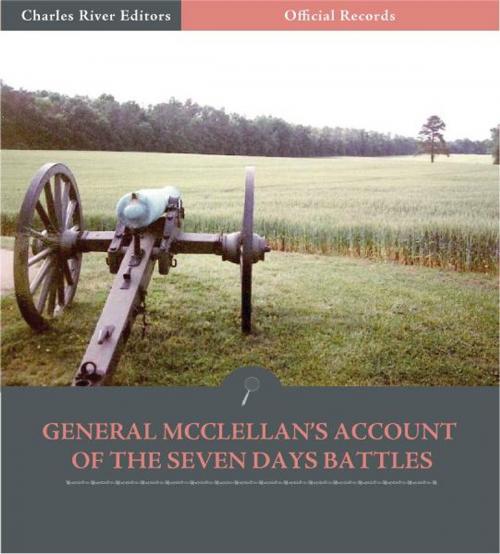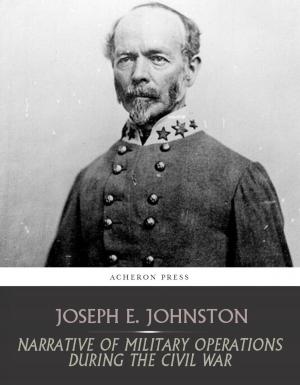Official Records of the Union and Confederate Armies: General George McClellans Account of the Seven Days Battles
Nonfiction, History, Americas, United States, Civil War Period (1850-1877), 19th Century, Military| Author: | George B. McClellan | ISBN: | 9781619826854 |
| Publisher: | Charles River Editors | Publication: | February 15, 2012 |
| Imprint: | Language: | English |
| Author: | George B. McClellan |
| ISBN: | 9781619826854 |
| Publisher: | Charles River Editors |
| Publication: | February 15, 2012 |
| Imprint: | |
| Language: | English |
George Brinton McClellan (December 3, 1826 October 29, 1885) was a major general during the American Civil War. He organized the famous Army of the Potomac and served briefly (November 1861 to March 1862) as the general-in-chief of the Union Army. Early in the war, McClellan played an important role in raising a well-trained and organized army for the Union. Although McClellan was meticulous in his planning and preparations, these characteristics may have hampered his ability to challenge aggressive opponents in a fast-moving battlefield environment. He chronically overestimated the strength of enemy units and was reluctant to apply principles of mass, frequently leaving large portions of his army unengaged at decisive points. McClellan's Peninsula Campaign in 1862 ended in failure, with retreats from attacks by General Robert E. Lee's smaller Army of Northern Virginia and an unfulfilled plan to seize the Confederate capital of Richmond. His performance at the bloody Battle of Antietam blunted Lee's invasion of Maryland, but allowed Lee to eke out a precarious tactical draw and avoid destruction, despite being outnumbered. As a result, McClellan's leadership skills during battles were questioned by U.S. President Abraham Lincoln, who eventually removed him from command, first as general-in-chief, then from the Army of the Potomac. Lincoln offered this famous evaluation of McClellan: "If he can't fight himself, he excels in making others ready to fight." As a commanding general, McClellan had to write official accounts of his campaigns, and they were preserved in The War of the Rebellion: Official Records of the Union and Confederate Armies. McClellan wrote an official account of the Seven Days Battles, and this edition includes pictures of the important commanders of the battle.
George Brinton McClellan (December 3, 1826 October 29, 1885) was a major general during the American Civil War. He organized the famous Army of the Potomac and served briefly (November 1861 to March 1862) as the general-in-chief of the Union Army. Early in the war, McClellan played an important role in raising a well-trained and organized army for the Union. Although McClellan was meticulous in his planning and preparations, these characteristics may have hampered his ability to challenge aggressive opponents in a fast-moving battlefield environment. He chronically overestimated the strength of enemy units and was reluctant to apply principles of mass, frequently leaving large portions of his army unengaged at decisive points. McClellan's Peninsula Campaign in 1862 ended in failure, with retreats from attacks by General Robert E. Lee's smaller Army of Northern Virginia and an unfulfilled plan to seize the Confederate capital of Richmond. His performance at the bloody Battle of Antietam blunted Lee's invasion of Maryland, but allowed Lee to eke out a precarious tactical draw and avoid destruction, despite being outnumbered. As a result, McClellan's leadership skills during battles were questioned by U.S. President Abraham Lincoln, who eventually removed him from command, first as general-in-chief, then from the Army of the Potomac. Lincoln offered this famous evaluation of McClellan: "If he can't fight himself, he excels in making others ready to fight." As a commanding general, McClellan had to write official accounts of his campaigns, and they were preserved in The War of the Rebellion: Official Records of the Union and Confederate Armies. McClellan wrote an official account of the Seven Days Battles, and this edition includes pictures of the important commanders of the battle.















